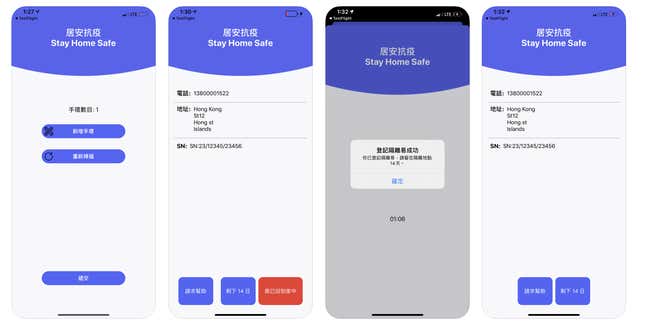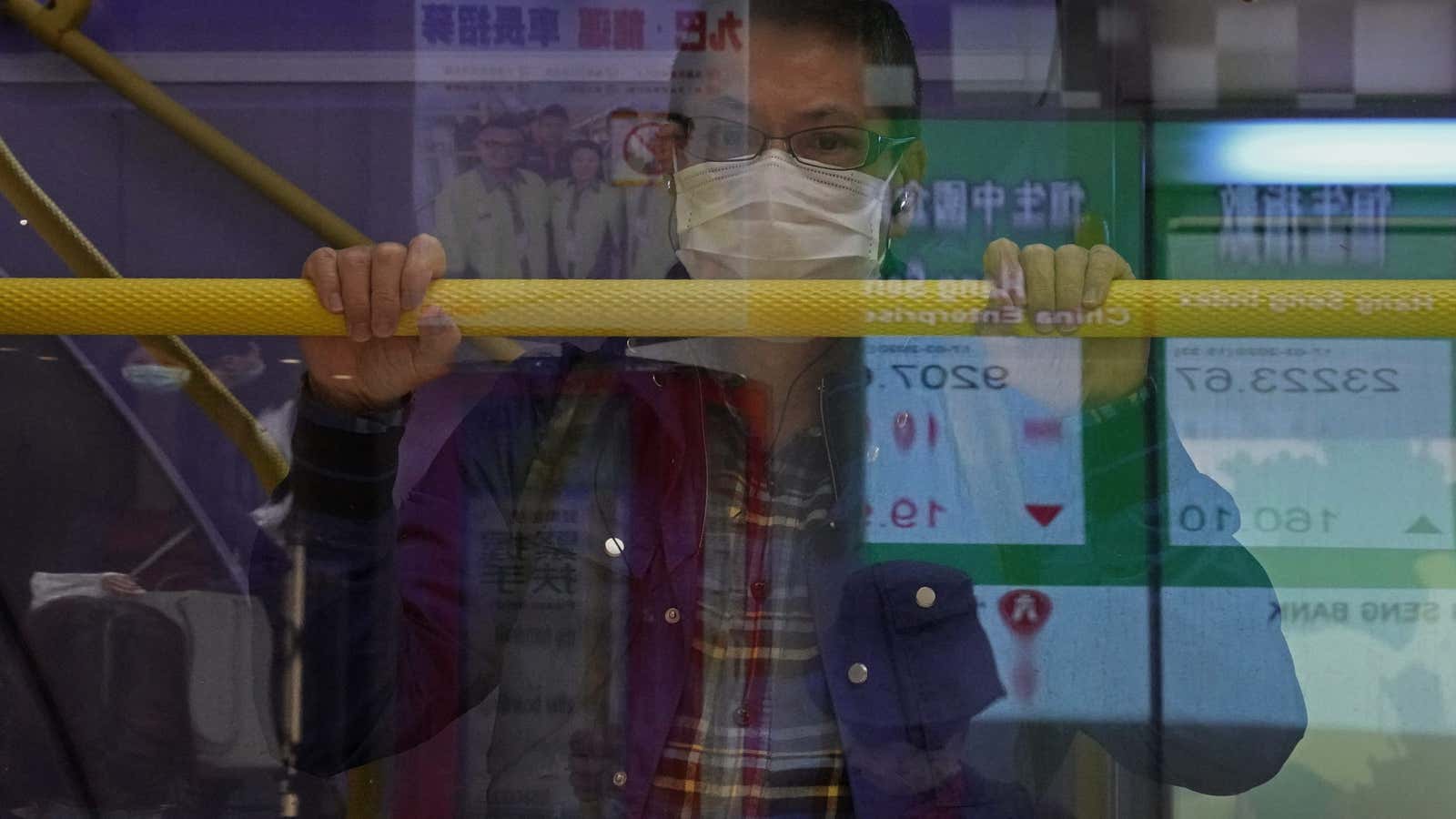To ensure people under compulsory home quarantines do not stray from the confines of their apartments, the Hong Kong government has rolled out electronic tracker wristbands that alert authorities to rogue escapees.
Under a new measure that took effect yesterday, all arrivals to Hong Kong from overseas will have to undergo a mandatory 14-day home quarantine as the city tries to curb the spread of Covid-19, the disease caused by the new coronavirus.
The measure also comes as Hong Kong is experiencing a new spike in cases, almost all of them imported from abroad, as people rush to return to the city from areas perceived as higher risk such as Europe or the US. The city reported 48 new cases today, bringing the total case count to 256, with scientists at the University of Hong Kong warning that the city is now at its highest risk of a sustained local outbreak since the epidemic began in January.
Here’s how the wristbands work. At the airport, all arrivals are given a wristband, each with a unique QR code. The user will then download an app called StayHomeSafe on their phone, and scan the QR code to pair the wristband with the app. Once home, they are to walk around the apartment to calibrate the wristband.
The wristband and the app use what is called geofencing technology, which is different from GPS location tracking, explained Gary Chan, co-founder and director of Compathnion Technology, the local startup behind the app.
“As you walk around the home, the algorithm on the app will sample the signals of the home,” said Chan, who is also a professor of computer science and engineering at the Hong Kong University of Science and Technology. Each home has a unique set of communications signals, including your own WiFi network, WiFi from nearby, Bluetooth, and cellular networks. As the user walks around the apartment, the app creates what Chan described as a “composite signature of the home.” If someone tries to breach the quarantine by leaving their home, the app triggers a warning and alerts the government. Anyone violating their quarantine could face up to six months in prison and a fine of up to HK$25,000 ($3,200).

The government has argued that the wristband poses no privacy concerns because it does not track one’s exact location. As Chan put it, it’s actually “privacy preserving” because it merely looks at signals to deduce whether someone is inside or outside of the home. It’s not clear how effective the wristbands will be, however. Of the 6,000 wristbands handed out so far, only a third had been activated as of today (Mar. 20), according to the government. Meanwhile, reviews of the app on the Google Play store suggest that users were encountering numerous glitches and errors.
Taiwan is also deploying tracking technology to enforce quarantine measures, but unlike Hong Kong it monitors cellular signals on phones. Other countries, including Israel, are using GPS data on phones to track people who may need to be quarantined. With Hong Kong being such a densely populated and vertical city, however, GPS tracking may not be the most effective. “In Hong Kong especially, you can basically walk down the stairs or go down the lift and go right into the mall underneath the building, and you can have no GPS signal at all,” said Chan.
Many countries are already drawing on surveillance technologies to combat the coronavirus pandemic. Australia, for example, tapped a phone tracking system typically used for criminal investigations to map out the movements of a Chinese couple who were infected with the coronavirus. Singapore, meanwhile, has a team of digital detectives to monitor those under quarantine and trace the travel of confirmed Covid-19 cases. Israel this week implemented emergency cyber surveillance measures to allow authorities to track the phones of confirmed and suspected coronavirus patients. And the US is in discussions with Facebook and Google about potentially using aggregated and anonymized location data from smartphone.
Correction: An earlier version of this article incorrectly said that Taiwan used GPS tracking to monitor people under quarantine.
